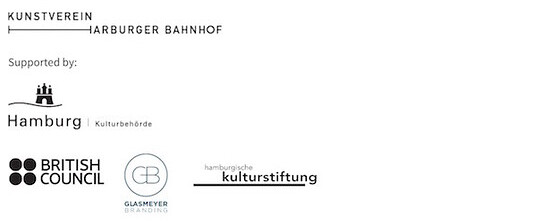60 million Americans can’t be wrong
November 4, 2016–February 12, 2017
über Gleis 3 & 4
Hannoversche Str. 85
21079 Hamburg
Germany
T +49 40 76753896
info@kvhbf.de
Late at night on March 1, Canada’s Citizen and Immigration website slowed to a crawl as thousands upon thousands of Americans reacted in despair to the results of the US Republican primaries. Their worst fears now seem unlikely to materialize. But nevertheless, one week from now a significant part of the American electorate will have voted in a way that has already prompted others to consider leaving the country. Is this a symptom of a post-truth democracy that is becoming increasingly divided? A place where political deliberation has been replaced by reactionary debates that inflame polarized prejudice? Could this US Presidential election even constitute a revolutionary attempt by the demographically disenfranchised? Or might this all indicate a more profound crisis in liberal democracy itself?
The idea that democracy may be an insufficient form of government has existed at least since Plato attributed the execution of Socrates to the ignorance of the mob. This type of political system can engender prejudice even when it does function; and when it doesn’t, democracy can offer the perfect smokescreen for the rule of clever elites. In his 1970 treatise Exit, Voice, and Loyalty, German-born economist Albert O. Hirschman posits that exit—leaving—is the ultimate political choice possible in a liberal democracy. Citizens, he suggests, demonstrate loyalty when the system serves them well. They exercise their democratic voice when they believe the system is open to change. And if they realize that the only way to change the system is from the outside, by finding something altogether better, they leave. This recourse to exit, in Hirschman’s view, was the founding imperative of the United States itself; and it has remained a crucial way of ensuring political accountability ever since. But in 2016, to where would a dissatisfied electorate go? Canada? Really?
Influenced by Hirschman’s writings, the Silicon Valley blockchain entrepreneur Balaji S. Srinivasan has suggested that America could be seen as the “Microsoft of nations”: its code base (or constitution) is written in an obfuscated language, it systematically propagates fear around security issues and it behaves ruthlessly towards key suppliers whilst favouring its rich corporate clients—and the world has no choice but to buy it anyway. But Srinivasan proposes that today’s exit might take a different form: by providing opt-in alternatives to incumbent systems, technological innovation can reduce barriers to exit, amplifying democratic voice reinforced by the ease of leaving. Threatened by increasingly mobile constituents who can transfer their loyalties to the cloud, democracy will be forced either to recover or to face collapse.
So how might a more liquid form of citizenship be imagined in an age of technologically accelerated dislocation? For his exhibition at Kunstverein Harburger Bahnhof, Christopher Kulendran Thomas presents New Eelam, a startup founded by the artist to develop a global housing subscription based on collective ownership. Together with his founding partners, Thomas proposes a long-term strategy for how a new economic model could evolve, without friction, out of the present system—through the luxury of communalism rather than private property. With this post-capitalist venture, Thomas imagines the future of citizenship beyond national borders, asking how a state could be constituted in corporate form and how a brand might communicate as an artist.
Christopher Kulendran Thomas’ work has been included in the 11th Gwangju Biennale (2016), the 9th Berlin Biennale (2016), Bread and Roses, Museum of Modern Art in Warsaw (2016), Co-Workers: Network As Artist, Musée d’Art Moderne de la Ville de Paris (2015) and Art Turning Left: How Values Changed Making, Tate Liverpool (2013). Forthcoming exhibitions include shows at Hamburger Bahnhof – Museum für Gegenwart (Berlin) and Tensta Konsthall (Stockholm).
Curated by Annika Kuhlmann
Artistic Directors: Lisa Britzger and Jennifer Smailes



